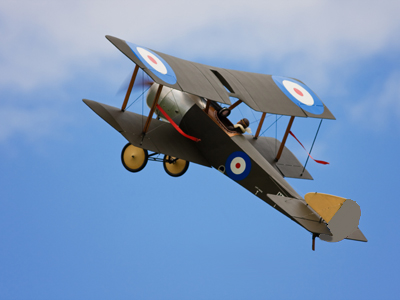
World War One: 1914-18 - Battles Of 1914 And 1915 On The Western Front
In GCSE History students will look at World War One, including the events which took place during war itself. This is the first of eight quizzes on that topic and it looks in particular at the battles on the Western Front in 1914 and 1915.
1914 saw the end of the type of moving warfare begun by the Germans in their invasion of Belgium in August. By the end of the year trench warfare had begun, with the trench line extending from the Channel coast to the Swiss frontier. Thus the battles of 1915 on the Western Front were attempts by both sides to break out of this.
Learn more about the battles which took place on the Western Front in 1914 and 1915 in this quiz.
Ready for more?
not all...
quizzers. Try to win a coveted spot on our Hall of Fame Page.







